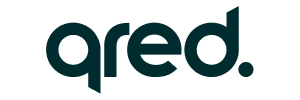Get a Buiseness loan today
Business loans Germany
Free, 100% digital business loan comparison
Super fast payout time
Fully repayable at any time
Recommended

Amount
€ 5.000 – 500.000
Repayment period
Flexible
Cost model
Fixed monthly fee
Verified Company
Fast application process
Payout within 24 hours
Business loans in Germany, or Geschäftskredite, are a crucial financial resource for entrepreneurs and companies in Germany looking to expand operations, manage cash flow, or invest in new projects. Whether you are a start-up needing initial capital or an established business seeking to grow, business loans provide the necessary funds to help achieve your goals.

Types of Business Loans in Germany
Germany offers a wide range of business loans tailored to meet the needs of different types of companies, from start-ups to large corporations. Each loan type has its specific purpose, eligibility criteria, and advantages. Understanding these options can help you choose the most suitable financing for your business. Here are the most common types of business loans available in Germany:
1. Traditional Bank Loans
These are the most common type of business loans in Germany, provided by banks such as Deutsche Bank, Commerzbank, and Sparkasse. Traditional bank loans are suitable for companies that have a solid credit history and stable financial records. They typically offer competitive interest rates and long-term repayment options, making them ideal for established businesses looking to finance large projects or expansions. However, the application process can be rigorous, often requiring detailed financial documents and collateral.
2. Start-Up Loans (Gründerkredite)
Start-up loans are specifically designed for new businesses and entrepreneurs seeking initial capital to launch their ventures. These loans are available through traditional banks, online lenders, and government programs like the KfW (Kreditanstalt für Wiederaufbau) bank, which supports start-ups with low-interest loans and longer repayment terms. Start-up loans usually come with flexible repayment options but often require a solid business plan and proof of the business’s viability to secure approval.
3. Government-Backed Loans (KfW Loans)
KfW, a government-owned development bank in Germany, offers various loan programs aimed at supporting SMEs and start-ups. KfW loans provide favorable terms, such as lower interest rates and longer repayment periods, to help businesses invest in innovation, sustainability, and expansion. These loans are often easier to obtain compared to traditional bank loans, as they are backed by the government. However, businesses must meet specific criteria and work through an intermediary bank to access KfW funds.
4. Online Business Loans
Online lenders provide a fast and convenient alternative to traditional banks. Platforms like Smava and Auxmoney offer business loans with quick application processes and minimal paperwork. These loans are particularly popular with small businesses and freelancers who need fast access to funds without the lengthy approval processes associated with banks. While online business loans are flexible and easy to obtain, they may come with higher interest rates compared to traditional bank loans.
5. Equipment Financing
Equipment financing is a loan specifically used to purchase machinery, vehicles, or other essential business equipment. German lenders, including both banks and specialized leasing companies, provide this type of loan. The equipment itself often serves as collateral, making it easier for businesses with less established credit histories to qualify. This type of financing is ideal for manufacturing companies, logistics firms, or any business that relies heavily on machinery and technology.
6. Invoice Financing (Factoring)
Invoice financing, also known as factoring, is a loan that allows businesses to borrow money against their outstanding invoices. It’s a common solution for businesses that face cash flow challenges due to delayed payments from clients. In Germany, various financial institutions offer factoring services, advancing funds based on the value of your invoices. This type of financing helps businesses maintain steady cash flow without taking on traditional debt, but it typically comes with fees and interest based on the invoiced amount.
7. Credit Lines (Kontokorrentkredit)
A business credit line is a flexible form of financing that provides companies with access to a revolving line of credit. Businesses can withdraw funds as needed, up to a certain limit, and only pay interest on the amount they use. This option is ideal for companies that experience fluctuating cash flow and need quick access to funds to manage daily operations. German banks and online lenders offer credit lines, often requiring a good credit history and financial stability for approval.
These diverse business loan options in Germany cater to different business needs, from start-up capital to equipment purchases and ongoing cash flow support. Understanding which loan type aligns with your company’s requirements will help you make the best decision for your business’s financial growth and stability.

Eligibility Criteria for a Business Loan in Germany
To qualify for a business loan in Germany, businesses must meet specific criteria set by lenders. These requirements vary depending on the type of loan, the lender (whether a traditional bank, online lender, or government-backed program), and the financial profile of the business. Generally, lenders look at a company’s financial health, credit history, and stability to determine eligibility. Below is an overview of the typical criteria that businesses need to fulfill to secure a loan.
Most lenders will evaluate the following factors
- Business Registration and Legal Structure: The business must be legally registered in Germany and operate as a legal entity, such as a sole proprietorship (Einzelunternehmen), limited liability company (GmbH), or partnership (OHG/ KG).
- Operating History: Many lenders prefer businesses that have been operating for at least 1-2 years, although some start-up loans are available for newer businesses.
- Credit History: A positive credit score is crucial for securing favorable loan terms. Both the business and, in some cases, the business owner’s personal credit score are assessed.
- Annual Revenue and Profitability: Lenders often require proof of stable revenue and profitability. Documents such as profit and loss statements, tax returns, and balance sheets may be requested.
- Business Plan: For start-ups and businesses seeking substantial loans, a detailed business plan outlining financial projections and strategies is typically required to demonstrate the company’s growth potential and loan repayment capability.
- Collateral: Some business loans, especially larger ones, may require collateral such as property, equipment, or accounts receivable to secure the loan.
Business Loan Example
To provide a clear understanding of how a business loan works in Germany, here’s an example:
| Detail | Amount |
|---|---|
| Loan Amount | 100,000 EUR |
| Loan Term | 5 years |
| Interest Rate (Annual) | 4.5% |
| Monthly Payment | 1,864 EUR |
| Total Interest Paid | 11,840 EUR |
| Total Repayment Amount | 111,840 EUR |
- Loan Amount: The business borrows 100,000 EUR to finance growth or cover operational costs.
- Loan Term: The loan is to be repaid over 5 years (60 months), providing manageable repayment installments.
- Interest Rate: The annual interest rate is set at 4.5%, which is competitive for a business loan with this term length.
- Monthly Payment: The monthly payment is approximately 1,864 EUR, which includes both principal and interest.
- Total Interest Paid: Over the 5-year term, the total interest paid amounts to 11,840 EUR.
- Total Repayment Amount: The total cost of the loan, including interest, is 111,840 EUR.
FAQ
Frequently Asked Questions
Most lenders prefer businesses that have been operating for at least 1-2 years. However, some start-up loans are available for newer businesses, especially through government programs like KfW.
Yes, new businesses can apply for start-up loans, especially through KfW or other government-backed programs. You’ll need a solid business plan and proof of your business’s viability.
A positive credit score is important for securing favorable loan terms. Lenders may check both the business’s and, sometimes, the owner’s personal credit score to assess risk.
Common documents include business registration, financial statements, tax returns, profit and loss statements, and a detailed business plan, especially for larger loans.
Not always. While larger loans may require collateral like property or equipment, smaller loans or online loans often don’t. Government-backed loans may also offer more flexible terms.
Yes, foreigners can apply, but they must have a legal business registration in Germany, a valid residence permit, and proof of stable income or business viability.
The approval time varies. Traditional banks may take several weeks, while online lenders often provide approval within a few days. Government-backed loans may also have specific timelines.
Interest rates vary depending on the lender, loan type, and your credit profile, but they generally range from 2% to 8%. Government loans tend to offer lower rates.


